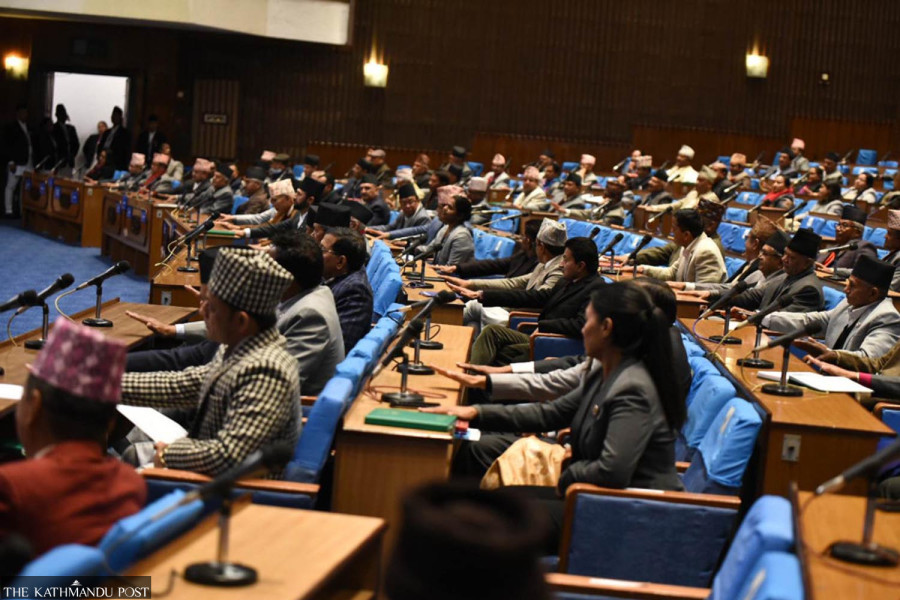Editorial
Don’t waste the winter
People will be closely following the new session of parliament to see if it meets their expectations.
The winter session of the Federal Parliament commenced on Monday with some new commitments and initiatives. Giving his inaugural statement, Speaker Dev Raj Ghimire said he was mindful of the public criticism that the two previous sessions of the federal legislature were not productive in terms of law-making. This time, the parliament has introduced some new practices. A digital system of attendance has been started for lawmakers and their attendance record will be made public on the parliament’s website. A short-term calendar of events has also been prepared for full House meetings.
These arrangements may help the legislature address some functional issues. Postponement of meetings due to lack of quorum has, over the years, continuously bedevilled Nepal's parliament. Lawmakers complained of difficulty juggling time between the House, its committee meetings and their electoral constituencies due to the unpredictable schedule of the House sittings. With the introduction of the calendar of events and other new arrangements, we can expect some improvements on these fronts.
The experience of implementing a calendar of events during the terms of the two Constituent Assembly, however, was not encouraging. Failing to abide by the calendar, the CA would extend its own deadline several times. Even so, if it can be followed, the calendar will not only help with the management of parliamentary businesses. It will also assist ministers and top government officials better coordinate with the legislative body. Greater predictability in the business of the top policy-making body, in turn, will make life easier for other state and non-state agencies.
The parliament has also announced the start of pre-budget discussions on the policies and programmes of the upcoming fiscal budget in the winter session. The mandatory constitutional provision of annual budget presentation on Jeth 15 (which this year falls on May 28) has ensured a predictability of the budget timeline. Timely pre-budget discussions will add to the legitimacy of the new budget.
These initiatives, however, are more procedural formalities. The people's representative body will be judged more on its ability to address issues of public concern. Lawmakers must give top priority to address pressing issues of the day. Hundreds of thousands of people have been victimised by cooperatives, micro-finances and individual lenders. Issues of migrant workers going to war-torn countries by risking their lives in search of employment have emerged as another national problem. It has become hard even to repatriate the bodies of the Nepalis killed in war-torn countries. Lawmakers in the parliament need to closely study such issues and try to find pragmatic and definite solutions.
Winter session is taken as a bill session. The past two sessions of the federal legislature were a failure in terms of law-making. The previous one could pass just a single bill, except endorsing the more routine budget-related ones. This time, both the government and the parliament leadership have pledged to endorse crucial bills including those related to transitional justice, police adjustment in provinces, money laundering and school education.
The winter House session will proceed with over two dozen bills that are in different stages in the House, including a dozen that are under discussion in various committees. Minister for Law and Parliamentary Affairs Dhan Raj Gurung has pledged to register around 30 new bills. Again, both the government and parliament leadership will be judged based on whether they can endorse these vital bills. The Speaker, on Monday, said that the House will now work to regain public trust. It better. The steady erosion of public trust in the legislature is casting a long shadow on the democratic process in Nepal.




 10.12°C Kathmandu
10.12°C Kathmandu














